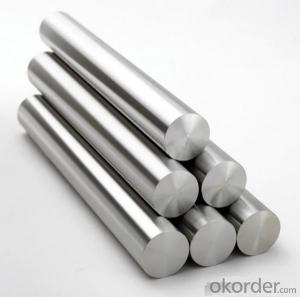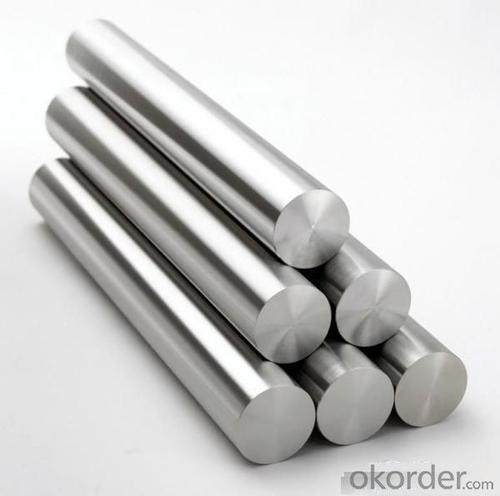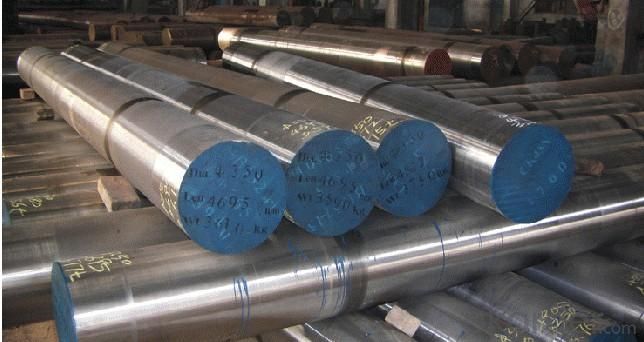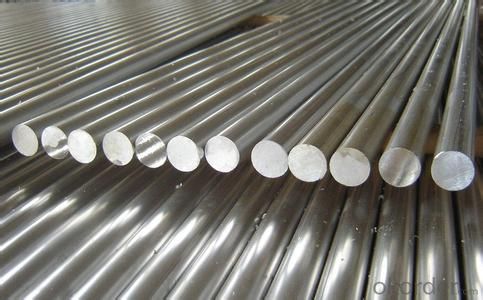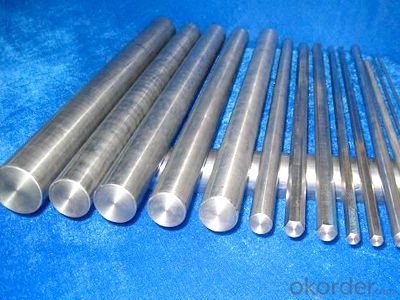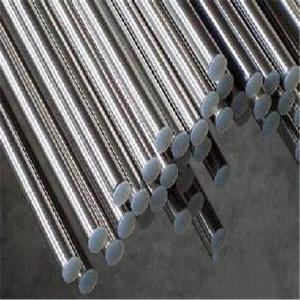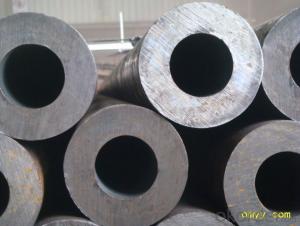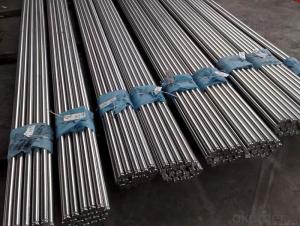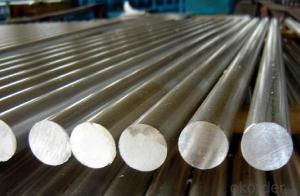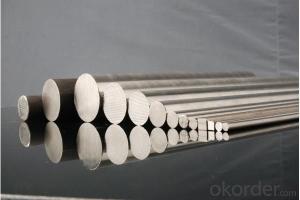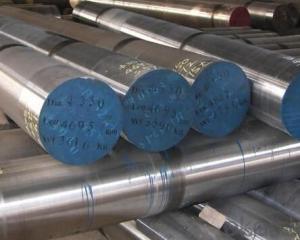Grade SUS410 Stainless Steel Round Bar with Certification
- Loading Port:
- Shanghai
- Payment Terms:
- TT OR LC
- Min Order Qty:
- 3 m.t.
- Supply Capability:
- 100000 m.t./month
OKorder Service Pledge
OKorder Financial Service
You Might Also Like
Specification
Grade SUS410 Stainless Steel Round Bar with Certification
Details Information of Grade SUS410 Stainless Steel Round Bar with Certification
| Name | SUS410 Stainless Steel |
| Shape | Round Bar/Square Bar/Flat Bar/Plate/Wire |
| Standard | GB/ASTM/SAE/AISI/DIN/JIS/EN/BS |
| Surface Treatment: | Black/Peeling/Polished/Machined |
| Delivery Condition: | Hot Rolled or Forged/Peeled or Black Surface |
| Test | SGS/UT 100% Elements Testing |
| Certificate: | ISO/Mill Certificate |
| Service: | 24 hours online service / |
| more than 20 years trading and manufacture | |
| Quality Assurance: | the third party inspection, such as SGS, BV, TUV…etc. is acceptable |
| Packaging Details: | Seaworthy Packaging or as per customer's packing instruction |
| Carbon structure round bar | Q195 Q235A Q235B 10# 20#-55# S45CB |
| Low alloy high strength round bar | Q345A/Q345C/Q345D Q345B Q345E |
| Alloy structure round bar | SAE51B20 20Cr 40Cr 40CrV 20CrMo/30CrMo/35CrMo/42CrMo 20CrMoA/30CrMoA/35CrMoA/42CrMoA/42Cr ML20CrMo/ML30CrMo/ML35CrMo/ML42CrMo B7/SCM435-440 20MnTiB 20CrMnMo 20CrMoH 42CrMoH 40MnB/40MnBH 30Mn2-40Mn2 27SiMn 50CrVA 30CrMnTi |
| Pinion steel | 20CrMnTi 20CrMnTiH 20CrMnTiHCS/20CrMnTiHLD Q20CrMnTi-1/Q20CrMnTi-2 |
| Sucker rod | 20-35CrMoA |
| Free-cutting steel | GT1215S |
| Spring steel | 60Si2MnA 65Mn |
| Ball bearing steel | GCr15 |
Chemical Composition of Grade SUS410 Stainless Steel Round Bar with Certification
| C | Si | Mn | P | S | Cr | Ni | Cu |
| 0.17-0.24 | 0.17-0.37 | 0.35-0.65 | ≤0.035 | ≤0.035 | ≤0.25 | ≤0.25 | ≤0.25 |
| Tensile strength (σb/MPa) | Yield strength (σb/MPa) | Elongation (δ5/%) |
| ≥410(42) | ≥245(25) | ≥25 |
Company Introduction of Grade SUS410 Stainless Steel Round Bar with Certification
CNBM International Corporation is the most import and export platform of CNBM group(China National Building Material Group Corporation) ,which is a state-owned enterprise, ranked in 270th of Fortune Global 500 in 2015.
With its advantages, CNBM International are mainly concentrate on Cement, Glass, Iron and Steel, Ceramics industries and devotes herself for supplying high quality series of refractories as well as technical consultancies and logistics solution.
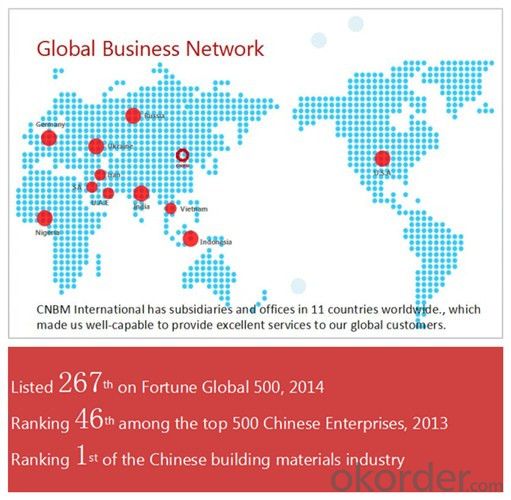
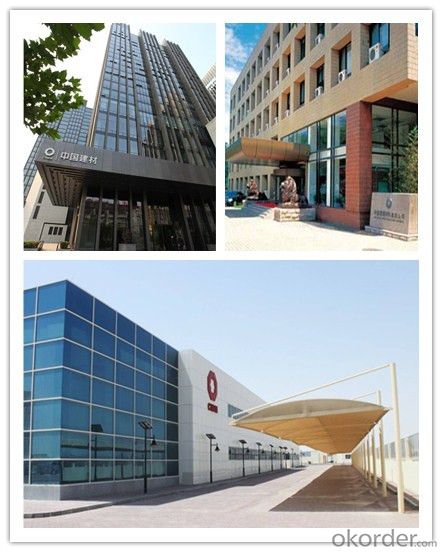
Certificates of Grade SUS410 Stainless Steel Round Bar with Certification
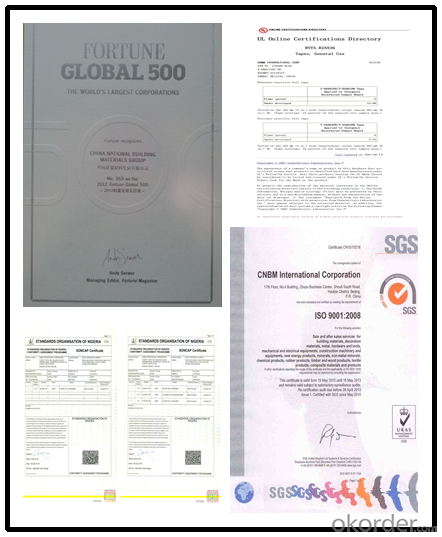
Packaging & Delivery of Grade SUS410 Stainless Steel Round Bar with Certification
Packaging Detail | Sea worthy packing /as per customer's packing instruction |
Delivery Detail | 15 ~ 40 days after receiving the deposit |
Products show of Grade SUS410 Stainless Steel Round Bar with Certification
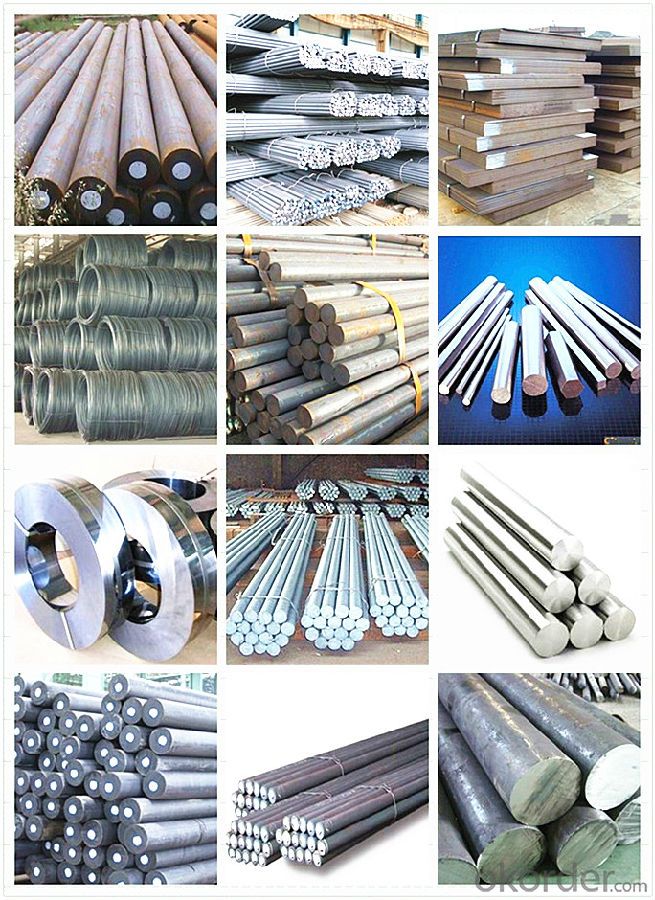
FAQ
Are you a trading company or manufacturer? | Manufacturer |
What’s the MOQ? | 3 metric ton |
What’s your delivery time? | 15-35 days after downpayment received |
Do you Accept OEM service? | Yes |
what’s your delivery terms? | FOB/CFR/CIF |
What's the Payment Terms? | 30% as deposit,70% before shipment by T/T |
Western Union acceptable for small amount. | |
L/C acceptable for large amount. | |
Scrow ,Paybal,Alipay are also ok | |
Why choose us? | Chose happens because of quality, then price, We can give you both. Additionally, we can also offer professional products inquiry, products knowledge train (for agents), smooth goods delivery, excellent customer solution proposals. |
What's your available port of Shipment? | Main Port, China |
What’s your featured services? | Our service formula: good quality+ good price+ good service=customer's trust
|
Where are your Market? | Covering more than 160 countries in the world |
- Q: What are the non-destructive testing methods used for special steel?
- Some of the non-destructive testing methods used for special steel include ultrasonic testing, magnetic particle testing, liquid penetrant testing, and radiographic testing. These methods allow for the detection of defects, cracks, or other imperfections in the steel without causing any damage to the material itself.
- Q: How does special steel perform in high-stress environments?
- Special steel performs exceptionally well in high-stress environments due to its unique properties. Its enhanced strength, durability, and resistance to corrosion make it highly reliable and capable of withstanding extreme conditions. This allows it to maintain its structural integrity and prevent deformation or failure, making it ideal for use in demanding industries like aerospace, oil and gas, and automotive.
- Q: What are the different surface protection methods used for special steel?
- There are several surface protection methods used for special steel to enhance its durability and resistance to various forms of damage. One commonly used method is galvanizing, where a layer of zinc is applied to the surface of the steel. This helps to protect the steel from corrosion and rusting, increasing its lifespan and maintaining its appearance. Galvanizing can be done through hot-dip galvanizing or electroplating, depending on the specific requirements of the steel. Another method is powder coating, which involves applying a dry powder to the steel surface and then curing it in high temperatures. This creates a protective layer that is resistant to chipping, scratching, and fading. Powder coating is often used for aesthetic purposes as it provides a wide range of color options and can improve the steel's appearance. Additionally, special steel can be protected using various types of paints and coatings. These coatings can be applied through spray or brush, and they provide a barrier against corrosion, chemicals, and UV radiation. Epoxy, polyurethane, and acrylic coatings are commonly used for this purpose, depending on the specific needs and environment the steel will be exposed to. Furthermore, stainless steel is inherently resistant to corrosion due to its composition, but it can be further protected by passivation. Passivation is a chemical treatment that removes iron particles from the surface, preventing corrosion and enhancing the steel's resistance to staining and pitting. Lastly, special steel can also be protected by applying a layer of ceramic or enamel coating. These coatings provide a high level of resistance to heat, chemicals, and physical abrasion. They can be applied through spraying or dipping and are often used in environments where the steel will be exposed to extreme conditions or aggressive substances. In conclusion, the different surface protection methods used for special steel include galvanizing, powder coating, painting, passivation, and ceramic/enamel coating. These methods aim to enhance the steel's durability, resistance to corrosion, and overall lifespan, ensuring that it can withstand various environmental factors and maintain its structural integrity.
- Q: What are the main corrosion resistance properties of special steel?
- The main corrosion resistance properties of special steel include high resistance to rust, oxidation, and chemical attack. It can withstand harsh environments, such as exposure to saltwater, acids, and alkalis, without significant degradation. Additionally, special steel often possesses a passive oxide layer on its surface, which acts as a protective barrier against corrosion.
- Q: How does special steel contribute to the aerospace industry?
- Special steel contributes to the aerospace industry by offering several key benefits. Its high strength-to-weight ratio makes it ideal for constructing lightweight yet durable components, improving fuel efficiency and overall performance of aircraft. Additionally, its exceptional resistance to corrosion, heat, and extreme conditions ensures the longevity and reliability of aerospace structures. Special steel also enables the production of intricate and complex parts, enhancing the design flexibility and safety of aircraft.
- Q: Can special steel be used for making electrical components?
- Indeed, electrical components can indeed be crafted using special steel. Special steel denotes a collection of steels boasting distinct properties and features that render them fitting for diverse uses, including electrical components. These steels are frequently tailored to possess exceptional electrical conductivity, minimal electrical resistance, commendable magnetic traits, and outstanding heat endurance. They are commonly employed in electrical engineering scenarios where utmost performance and dependability are indispensable, such as the production of transformers, motors, generators, and electrical transmission systems. Furthermore, special steel can also furnish protection against corrosion and elevated temperatures, thereby augmenting its aptness for the manufacturing of electrical components.
- Q: How does special steel contribute to the infrastructure sector?
- Special steel plays a crucial role in the infrastructure sector by providing enhanced strength, durability, and resistance to various environmental factors. It is used in the construction of bridges, buildings, and other critical infrastructure projects, ensuring structural integrity and safety. Additionally, special steel is utilized in the manufacturing of machinery and equipment used in the sector, further contributing to its efficiency and reliability.
- Q: How is special steel used in the telecommunications industry?
- Special steel is used in the telecommunications industry for various applications, such as the construction of transmission towers, antenna supports, and satellite equipment. Its high strength, corrosion resistance, and durability make it ideal for withstanding harsh environmental conditions and ensuring the stability and reliability of telecommunications infrastructure.
- Q: How is special steel used in the production of injection molds?
- Special steel is commonly used in the production of injection molds due to its high strength, durability, and resistance to wear and corrosion. These properties make it ideal for withstanding the high temperatures, pressures, and repetitive stresses involved in the injection molding process. Additionally, special steel's excellent heat conduction enables efficient cooling, resulting in faster production cycles and improved part quality. Overall, the use of special steel in injection molds ensures the production of high-quality, precise, and consistent plastic parts.
- Q: What are the key characteristics to consider when selecting special steel?
- There are several key considerations to keep in mind when choosing special steel. Firstly, the composition of the steel is of utmost importance. The elements and their proportions within the alloy play a vital role in determining the steel's properties, such as strength, hardness, and resistance to corrosion. It is essential to carefully assess the intended use and select a composition that aligns with the desired performance. Mechanical properties are another critical aspect to consider. Tensile strength, yield strength, ductility, and toughness all determine how the steel will perform under different loads and impacts. Choosing a steel with appropriate mechanical properties for the specific application is crucial. The steel's heat treatment capabilities should also be taken into account. Special steels often undergo various heat treatment processes to enhance their properties. Factors like hardenability, tempering ability, and the ability to maintain hardness at high temperatures are essential factors to consider when selecting special steel. Corrosion resistance is a significant characteristic, particularly if the steel will be exposed to harsh environments or chemicals. Certain special steels are specifically designed to have excellent resistance to corrosion, making them suitable for applications in marine environments, chemical processing plants, or the oil and gas industries. Other characteristics to consider include machinability, weldability, and cost. Machinability refers to how easily the steel can be cut, drilled, or shaped, while weldability determines the steel's ability to be welded without compromising its properties. Cost is an important factor that should align with the project's budget constraints. To summarize, when choosing special steel, it is crucial to consider the composition, mechanical properties, heat treatment capabilities, corrosion resistance, machinability, weldability, and cost. By assessing these key characteristics in relation to the specific application, one can make an informed decision and select the most suitable special steel for the intended purpose.
Send your message to us
Grade SUS410 Stainless Steel Round Bar with Certification
- Loading Port:
- Shanghai
- Payment Terms:
- TT OR LC
- Min Order Qty:
- 3 m.t.
- Supply Capability:
- 100000 m.t./month
OKorder Service Pledge
OKorder Financial Service
Similar products
Hot products
Hot Searches
Related keywords
